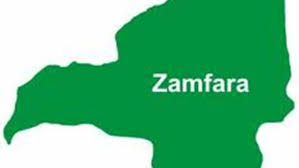In this report, BARNABAS OLABISI reports on efforts by successive governments at improving power in the country even though with little results.
When the journey started
Nigeria actually began generation of electricity in Lagos 1886 with the use of generators to provide 60 kilowatts.In 1923, tin miners installed a two megawatts plant on the Kwali River, six years later, the Nigerian Electricity Supply Company, a private firm was established near Jos to manage a hydro-electric plant at Kura to power the mining industry. Then another private enterprise was established in Sapele by United Africa Company (UAC) to power the activities of African Timber and Plywood Company. Between 1886 and 1945, electric power generation was rather low with power provided largely to Lagos and other commercial centres such as mining industries in Jos and Enugu. The colonial government created an electricity department within the Public Works Department which then installed generating sets in many cities to serve government reservation areas and commercial centres. Subsequently in 1950, the Legislative Council of Nigeria began moves to integrate the electricity industry when it enacted a law to establish the Electricity Corporation of Nigeria (ECN) with the duties of developing and supplying electricity. ECN took over the electricity sector activities within PWD and the generating sets of Native Authorities.In 1951, the firm managed 46 megawatts of electricity. Betweens 1952 and 1960, the firm established coal-powered turbines at Oji River and Ijora, Lagos and began making preliminary plans for a transmission network to link the power generating sites with other commercial centres.In 1961, ECN completed a 132 KV transmission line linking Lagos to Ibadan via Sagamu in 1965. This line was extended to Oshogbo, Benin and Ughelli to form the Western System.Chronologically in 1962, a statutory organisation, the Niger Dams Authority (NDA) was formed to build and maintain dams along River Niger and Kaduna River. NDA went on to commission a 320 megawatts hydropower plant at Kainji in 1969 with the power generated sold to ECN.
Not too distant past
In 1972 NDA and ECN merged to form the National Electric Power Authority (NEPA). NEPA was the major electricity firm in Nigeria until power sector reforms resulted in the creation of the Power Holding Company of Nigeria and later privatisation of electricity generation and distribution in the country presently.With research, electricity in Nigeria is generated through thermal and hydro power sources. The main source of electricity generation comes from fossil fuels especially gas which accounts for 86% of the capacity in Nigeria with the remainder generated from hydro power sources. Before the beginning of the Fourth Nigerian Republic, power generation was mainly the responsibility of the federal government through NEPA, but reforms started in 2005 with the signing of the Electric Power Sector Reform Act opened up the industry to private investors. So as a result of the power sector reform process, NEPA was unbundled and renamed Power Holding Company of Nigeria (PHCN).In 2014, the sector was totally privatised with three groups having the responsibility of providing power in the country.Nigeria has 23 power generating plants connected to the national grid with the capacity to generate 11,165.4 MW of electricity. These plants are managed by generating companies (GenCos), independent power providers and Niger Delta Holding Company (NIPP). The primary independent power plants before the power sector reforms are Shell owned Afam VI (642MW), Agip built Okpai plant (480MW) and AES (270MW). The third sector is the Ngeria Independent Power Plant (NIPP), a project that was initiated in 2004 to fast-track the development of new power plants in the country. Majority of the new proposed plants are gas-powered plants. In 2014, the proposed capacity of NIPP plants was 5,455MW. Having said all these, the power sector in the country have not had it so good to have a constant stable power generation and distribution that the citizenry can be proud of over all these years.In 2011, Power Holding Company of Nigeria (PHCN) was unbundled, leading to the creation of 6 GenCos and 11 DisCos. The overwhelming majority are privately owned. Through its giant high-voltage, high-tension wires and steel towers, the government-owned Transmission Company of Nigeria (TCN) connects GenCos to DisCos. DisCos interface with households, businesses and other end users, providing power and collecting bills. DisCos collect 24%of the tariff revenue in Nigeria’s electricity industry value chain.
The rest is shared by GenCos, TCN and stakeholders like the Central Bank of Nigeria (CBN) and the Nigeria Bulk Electricity Trading company (NBET).Upon the whole lots of reforms and calculations, Nigerians continue to wallop in the era of power shortage and with a serious toll and effect on the economy that cannot grow without good and stable supply of power.While there were complaints that due to the poor infrastructure received post-privatisation, insufficient metering and other reasons, DisCos are not able to efficiently charge and collect electricity payments from consumers. As a result, higher-up stakeholders in the industry don’t get their reward for work done.
The need to do more
However, Nigeria being a blessed country with high degree of sunlight, personnel and research institutions dotted all over, some Nigerians suggested a renewable source of power generation and distribution in form of solar energy to aid and relief the citizenry from epeleptic and shakles of bondages the consumers are suffering in the hands of the DisCos.Just as some developed countries globally are doing, despite the unfavourable conditions experiencing they still persist at improving on the sources of their energy supply and distribution.While the effect of power generation and distribution in Nigeria has completely crippled many industries and business concerns that could have continued to boost the economy wheel of the country, many Nigerians that are at the mercy of the Discos are groaning under the estimated monthly billing from the power distribution companies, despite the epileptic nature of power supply. Tactically, most of the power consumers were not given meter, under the pretext of non availability.
Opinions
However, a human rights activist and critics, Barr. Morakinyo Ogele argues that all power distribution companies across the country ought to meter all their prospectus consumers at every point on connection without any excuse.Ogele noted that instances of giving consumers estimated billings is like cheating, extortion and fraud on the consumers by the power distribution companies.Chief Jenyo Famuti, an idustrialist in Ondo state noted that activities of power distribution companies in the country from onset was a bit fair to early 80s before Nigerians began to experience adverse effects of power supply in the country.He posits further that the economic slumber Nigeria is experiencing presently can be easily traced to effect of poor power supply across the country, saying it has great adverse effects on all sectors like eduction, health, technology, industrial and governance.Many Nigerians who lend their voices on the matter blamed various government and administration of playing lip-service to this all-important sector for not doing much or nothing at improving the sector.A customer in Akure, Morakinyo Anele said, “Imagine,bI went to a power distribution office to lodge complain about power outage in my community and to my surprise, the office was in black-out and a generating set was behind the office making noise as to power the electrical facilities there,” what a shame she exclaimed.Investigation reveals that electricity generation in Nigeria can be improved from renewable sources instead of completely relying on the thermal energy. Products from coal and gas proves to be much more sustainable and financially sound in the long term.Nigerians have now continued to call on the federal government to take concrete steps towards having a stable power generation and distribution across the country for a progressive economy.




